Irish sea moss is everywhere, from chefs to skincare accounts on Instagram to TV programs like Shark Tank, with everyone raving about its benefits, from weight loss to flawless skin and perfect gut health. But why is Irish sea moss so unique compared to other sea plants? Is it a superfood we need to consume every day to stay healthy?
While on a plant-based diet, I try to eat seaweed and wakame and take kelp supplements to ensure I get enough Iodine. Irish sea moss is a new superfood to me, and I am intrigued. Let’s have a look at why it is so special and what Irish Sea Moss’s benefits are.
Nutritional Profile of Irish Sea Moss
Irish sea moss is about 80% water but a nutrient-dense seaweed that offers a wide range of nutrients :
Macro-Nutrients
Carbohydrates: Mostly in the form of dietary fibre, particularly soluble fiber which can aid in digestion and help manage cholesterol.
Proteins: Irish sea moss contains a small but notable amount of protein with essential amino acids.
Essential Amino Acids: Valine, leucine, isoleucine, phenylalanine, threonine, methionine, lysine, tryptophan, histidine.
Non-essential Amino Acids: alanine, arginine, aspartic acid, glutamic acid, glycine, proline, serine, and tyrosine.
Vitamins
Vitamin C: An antioxidant that supports the immune system, skin health, and wound healing.
Vitamin A: Important for vision, immune function, and skin health.
B Vitamins:
Riboflavin (B2): Helps the body break down carbohydrates, proteins, and fats to produce energy.
Folate (B9): Essential for proper brain function and crucial in mental and emotional health.
Thiamine (B1): Plays a critical role in energy metabolism and cell function.
Minerals
Iodine: Vital for thyroid health and metabolic functions.
Potassium: Helps regulate heart rate and blood pressure and supports nerve and muscle function.
Calcium is essential for bone health and affects heart and muscle function.
Magnesium: Involved in over 300 biochemical reactions in the body, including protein synthesis, muscle and nerve function, blood glucose control, and blood pressure regulation.
Iron: Crucial for forming haemoglobin and oxygen transport in the blood.
Selenium: An antioxidant that helps prevent oxidative stress and supports immune function.
Zinc: Important for immune function, wound healing, DNA synthesis, and growth.
Fatty Acids
Omega-3 Fatty Acids: Beneficial for heart health, anti-inflammatory processes, and brain function.
Omega-6 Fatty Acids: Essential for brain function and normal growth and development.
Antioxidants and Phytonutrients
Flavonoids: Provide cell signalling pathways and antioxidant effects.
Phenolic Compounds: Contribute to Irish sea moss’s antioxidant, anti-inflammatory, and anti-microbial properties.
Carotenoids: Pigments found in plants that can act as antioxidants and provide health benefits such as reducing the risk of disease.
How do these nutrients compare to other sea superfoods, such as Kelp, Chlorella, and Spirulina?
The best way to determine whether a new trendy superfood is worth your money is to compare it to similar products.
I’ve put together a table that highlights key nutrients in each to help you compare the nutritional values of Irish sea moss, kelp, chlorella, and spirulina. This overview provides insights into their protein content, vitamin and mineral availability, and other healthful components:
| Nutrient/Component | Irish Sea Moss | Kelp | Chlorella | Spirulina |
|---|---|---|---|---|
| Protein (per 100g) | Low 1-2g | Low 1-2g | High 45-60g | High 55-70g |
| Fiber (per 100g) | 6-8g | 1-2g | 10-12g | 1-3g |
| Vitamins | Vitamins A, C, B-vitamins (Thiamin, Riboflavin, Folate) | Vitamin K, B-vitamins (Thiamin, Riboflavin, Niacin) | Vitamins B12, C, E, K | B-vitamins (B1, B2, B3, B6, B9), Vitamins A, K, E, D |
| Minerals | Iodine, potassium, calcium, magnesium, selenium | Iodine, potassium, calcium, magnesium, iron | Iron, magnesium, zinc, calcium, phosphorus | Iron, calcium, magnesium, potassium, sodium, zinc, phosphorus |
| Fatty Acids | Minor amounts of omega-3 and omega-6 | Minor omega-3 fatty acids | GLA (Gamma-linolenic acid), omega-3 and omega-6 | GLA, omega-3 (ALA), omega-6 |
| Antioxidants | Flavonoids, phenolic compounds | Fucoxanthin, lignans | Lutein, beta-carotene, chlorophyll | Phycocyanin, beta-carotene, chlorophyll, zeaxanthin |
| Caloric Content (per 100g) | Approx. 49 calories | Approx. 43 calories | Approx. 290 calories | Approx. 290-325 calories |
| Unique Properties | Supports digestion, skin health, mucilaginous benefits | Supports thyroid health, rich in iodine | Detoxifying properties, boosts immune system | Extremely high in protein, endurance support |
Irish Sea Moss Benefits:
Irish sea moss stands out from kelp, chlorella, and spirulina in several unique ways, particularly regarding its nutrient profile and specific health benefits. Here are some of the key differentiating properties of Irish sea moss:
- High Mineral Diversity: Irish sea moss contains a broader range of minerals compared to many other seaweeds. It’s particularly noted for its potassium, calcium, and magnesium content, in addition to iodine, which is common in marine sources. This makes it excellent for supporting bone health and cardiovascular health.
- Skin Health: Sea moss is often praised for its benefits to the skin. It’s used topically as well as ingested for its potential to improve skin hydration and elasticity, thanks to its vitamin and mineral content, and its gelatin-like texture that helps soothe the skin.
- Gut Health: Sea moss is a good source of soluble fibre, which can help improve digestion and maintain a healthy gut microbiome. This type of fibre can also aid in regulating blood sugar and cholesterol levels.
- Vitamin C and B Vitamins: Unlike kelp, chlorella, and spirulina, sea moss contains a significant amount of vitamin C and various B vitamins, crucial for energy production and maintaining healthy skin, nerves, and digestion.
- Low Caloric Content: Sea moss has a low-calorie count; consuming it adds a lot of nutrition with only a few calories per serving.
- Soothing Properties: Due to its mucilaginous consistency, sea moss can soothe mucous membranes in the digestive system, making it a popular remedy for issues like gastritis and ulcers.
While spirulina and chlorella are known for their high protein content and unique antioxidants (like phycocyanin in spirulina), and kelp is known for its high iodine content, Irish sea moss offers a balance of vitamins, minerals, and soothing properties that make it particularly beneficial for skin health, digestive health, and as a versatile food additive.
If you want to learn about the benefits of spirulina, read: GREEN VS BLUE SPIRULINA POWDER. WHAT ARE THE BENEFITS?
Different Forms of Irish Sea Moss
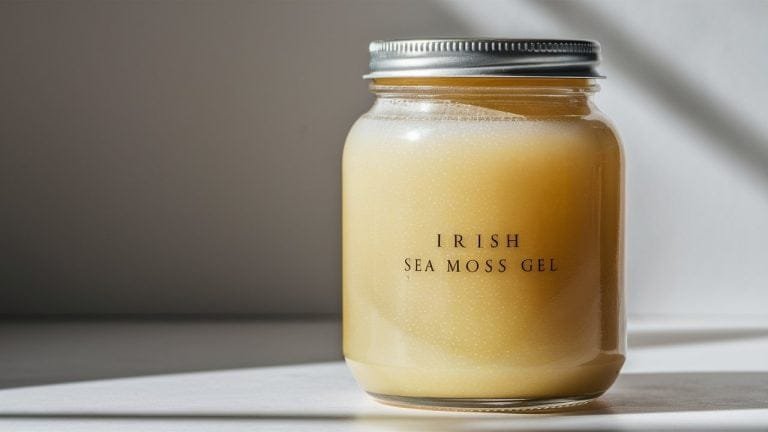
You can buy Irish Sea Moss in several forms, depending on your preference.
Irish Sea Moss Gel
Think of Irish sea moss gel as a kitchen multi-tool. It’s raw sea moss soaked in water and blended until it becomes a jelly. You can add it to your smoothies, mix it into oatmeal, or even slap it on your face as a soothing mask. It’s pretty easy to use and feels less like taking a supplement and more like using a natural ingredient.
Irish Sea Moss Capsules
If you don’t like the jelly-like consistency, are not a big fan of its taste, or are travelling, sea moss capsules can be a good choice. Like any other supplement, you take them with a glass of water.
Irish Sea Moss Powder
It’s dried sea moss ground up into a fine powder. You can sprinkle it on foods or stir it into drinks; it doesn’t mess with the flavour much. If you’re into baking or making elaborate dishes, the powder is subtle enough not to overpower other ingredients but adds a nutritional kick. It is also the most pure form of the Irish sea moss.
Irish Sea Moss Gummies
You might see Irish sea moss gummies around, too. They look colourful and are tasty, but they often come with a lot of added sugar, which defeats the purpose if you’re trying to eat healthy. You might want to avoid sea moss gummies to get the benefits without extra sugar.
If you want to try out Irish Sea Moss products, I have made a list of the BEST SEA MOSS PRODUCTS WITH NO ADDED BS YOU CAN BUY.
Ways to Incorporate Irish Sea Moss into Your Daily Life
As Irish sea moss comes in different forms, you can incorporate it into your diet and even as a skincare routine. Here are some examples :
In Your Diet
- Smoothies and Juices:
One of the easiest ways to start using sea moss is in your smoothies or juices. If you’re using sea moss gel, a couple of tablespoons blended into your favorite smoothie won’t alter the taste but will bump up the nutrient content. It makes your smoothies creamier too! - Soups and Stews:
Irish sea moss gel can act as a thickener for soups and stews. Since it’s virtually tasteless, it can blend into your recipes easily, enriching your meals with minerals without changing the flavour profiles you love.
- Homemade Nut Milk:
If you’re into making your own nut milks, like almond or cashew, adding a bit of sea moss gel can enrich the texture, making it silkier while fortifying it with additional nutrients.
In Your Skincare Routine
- Soothing Face Masks:
Mix some sea moss gel with ingredients like honey or turmeric for a soothing face mask. Apply it to clean skin, leave it on for about 15 minutes, and wash off with warm water. It’s great for hydrating the skin and can help with irritation thanks to its anti-inflammatory properties. - Daily Moisturizer:
Mix a small amount of sea moss gel into your usual face or body cream for a simple daily moisturiser. It adds hydration and minerals.
As a Dietary Supplement
- Direct Supplements:
If you’re not into cooking or mixing things up, the simplest way to get your sea moss is in capsule form. This way, you ensure you get a consistent dose of its benefits every day without preparing anything.
Scientifically Proven Benefits of Irish Sea Moss
While the nutritional profile of Irish sea moss is great, and you can find many benefits online, scientific research on this seaweed still needs to be more extensive. Here are a few key findings:
- Thyroid Function: Research has shown that the iodine in Irish sea moss can help produce thyroid hormones. However, if you take it as a supplement, it’s important to be aware of Irish Sea Moss’s high iodine content, which could affect thyroid function if consumed in large quantities. (1)
- Gut Health: Some studies suggest that the prebiotic effect of Irish sea moss can promote a healthy microbiome in the gut. Irish sea moss is known for its beneficial soluble fibre content. While the exact amount can vary based on the source and preparation, dried Irish sea moss typically contains about 6 to 8 grams of fibre per 100 grams. (2)
- Antioxidant Properties: Sea moss contains antioxidants that may help protect against cellular damage and support overall health.
It would be great to see more scientific studies carried out on Irish sea moss. The question is, who will pay for them?
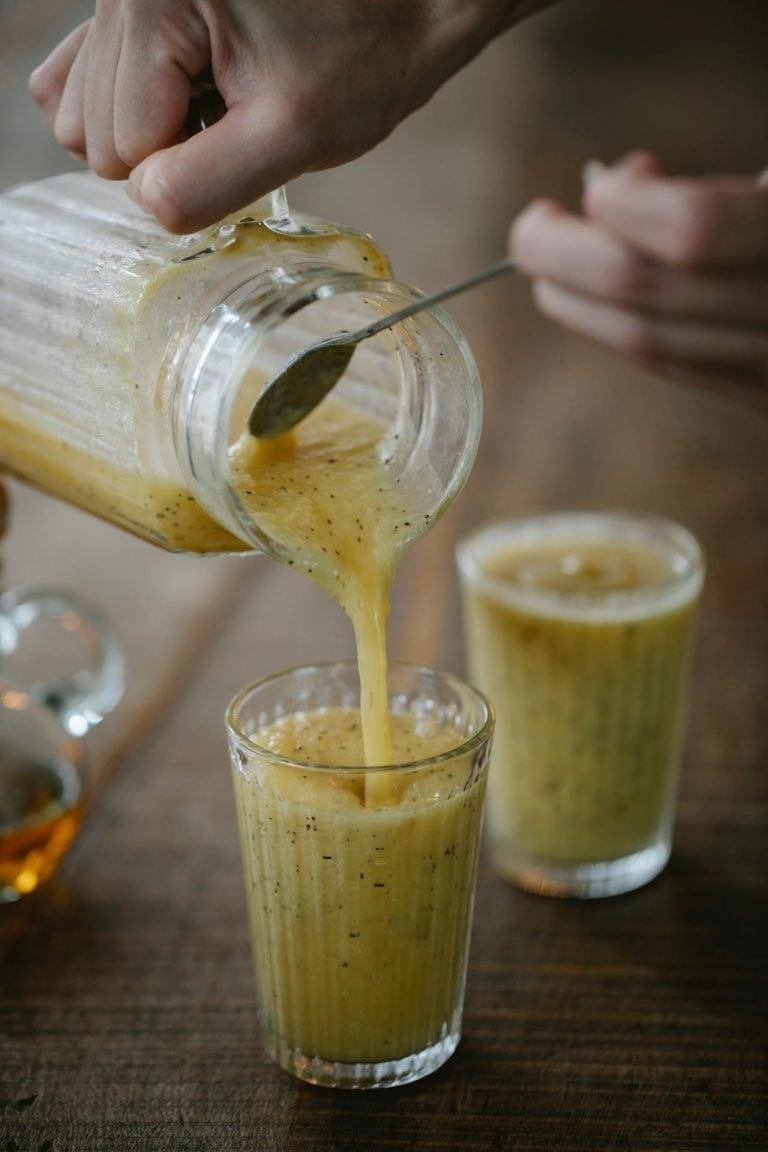
FAQs:
1. Are there any side effects or allergies associated with Irish sea moss?
Irish sea moss is generally considered safe for most people, but like any supplement, it can have side effects, especially if consumed in large quantities. Here’s a rundown of potential side effects:
Iodine Overload:
Irish sea moss is rich in iodine, a mineral crucial for thyroid function. However, too much iodine can lead to thyroid dysfunction, potentially causing either hyperthyroidism or hypothyroidism. It’s important to monitor intake, especially if you have existing thyroid issues.
Allergic Reactions:
Some people may be allergic to sea moss, especially those who are allergic to other seaweeds or iodine.
Gastrointestinal Issues:
Due to its high fibre content, excessive consumption of sea moss can lead to bloating, gas, or constipation. Starting with small amounts and gradually increasing the dosage can help to avoid them.
Interactions with Medications:
Sea moss could interact with certain medications, including anticoagulants and anti-thyroid medications. If you are on medication, it’s always a good idea to talk to a healthcare provider before starting any new supplement.
2. Does Irish sea moss help you lose weight?
Irish sea moss may aid in weight loss due to its low caloric content and high soluble fibre, which can help increase feelings of fullness and reduce overall calorie intake. Its rich iodine content also supports thyroid function, which is crucial for regulating metabolism. Although beneficial, Irish sea moss is not a magic solution and should be incorporated as part of a balanced diet and overall healthy lifestyle rather than being relied upon as a standalone weight loss solution. It’s also important to consume it in moderation due to its high iodine content, which could affect thyroid health if overused.
3. Does Irish sea moss really contain 92 minerals?
Irish sea moss is constantly praised for containing 92 of the body’s 102 essential minerals, but this claim lacks robust scientific backing.
The human body actually requires about 20 essential minerals for proper functioning, including both macro-minerals like calcium and magnesium and trace minerals such as zinc and selenium.
While Irish sea moss does include a range of beneficial minerals like iodine, calcium, potassium, sulfur, and magnesium, and small amounts of other trace minerals, the assertion that it provides up to 92 minerals is inflated. The exact mineral content of Irish sea moss can vary depending on where it is harvested, particularly the mineral composition of the water.
Though sea moss is a nutritious supplement that can enhance diets, particularly in iodine and potassium, it’s crucial to critically assess claims and consider the broader nutritional profile of any supplement.
Conclusion:
Irish sea moss is currently a buzzword, praised for its numerous health benefits, including better skin, weight management, and improved gut health. But what makes Irish sea moss stand out?
Irish sea moss offers excellent nutrition, providing many minerals, vitamins, and essential and non-essential amino acids. It’s more than just a source of iodine like kelp or an antioxidant provider like spirulina; Irish sea moss brings a unique blend of nutrients.
However, the claim that it contains 92 minerals is an exaggeration that is not supported by scientific evidence. Therefore, when considering Irish sea moss, it’s crucial to prioritise quality sourcing, avoid overprocessed forms like gummies with added sugars, and consult healthcare providers, especially if you have existing health conditions or are taking other supplements.
Ultimately, Irish sea moss stands out for its nutritional content and adaptability in everyday use, making it easy to incorporate it into a balanced diet and skincare routine. Still, like all hyped-up superfoods, it is not a miracle.
Have you tried Irish sea moss already? Have you noticed any benefits?
Love learning about Superfoods? You can read: WHAT IS MAKHANA OR FOX NUT, AND IS IT WORTH THE HYPE?
- Darias-Rosales, J., Rubio, C., Gutiérrez, Á., Paz, S., & Hardisson, A. (2020). Risk assessment of iodine intake from the consumption of red seaweeds (Palmaria palmata and Chondrus crispus). Environmental Science and Pollution Research, 27, 45737 – 45741. https://doi.org/10.1007/s11356-020-10478-9
- Mohammed, H.O.; O’Grady, M.N.; O’Sullivan, M.G.; Hamill, R.M.; Kilcawley, K.N.; Kerry, J.P. An Assessment of Selected Nutritional, Bioactive, Thermal and Technological Properties of Brown and Red Irish Seaweed Species. Foods 2021, 10, 2784. https://doi.org/10.3390/foods10112784
Silvija Meilunaite, PN1-NC, CSMC, is a certified nutrition and menopause coaching specialist who writes about midlife health, nutrition, and evidence-based wellness. She focuses on research-driven approaches to feeling better in your 40s and beyond, with a special interest in low-tox living and supportive daily habits.
- This author does not have any more posts.

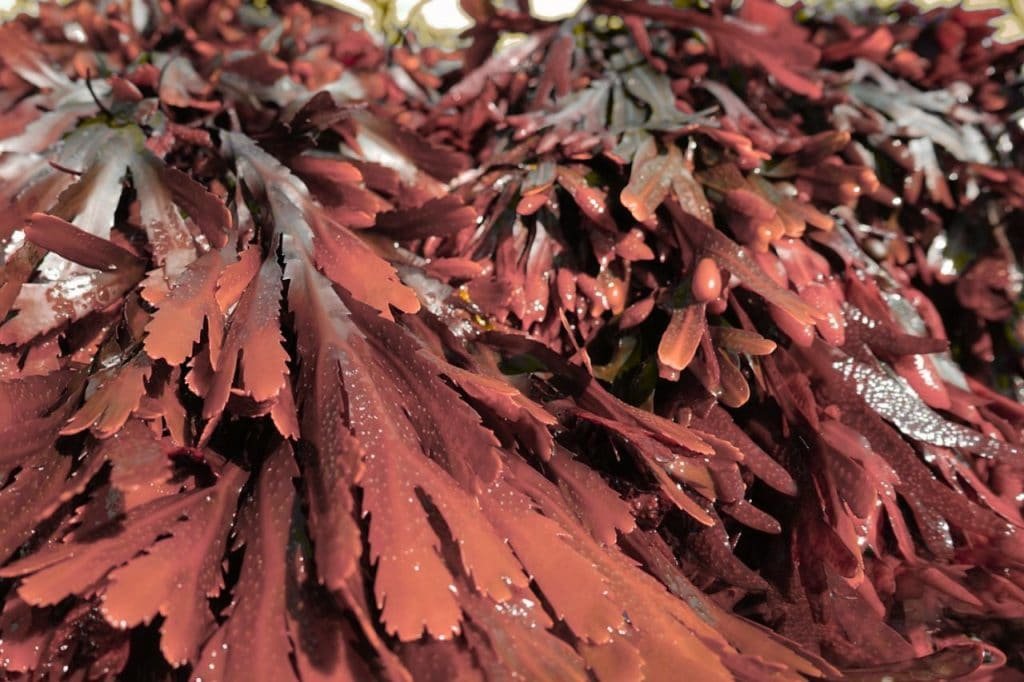
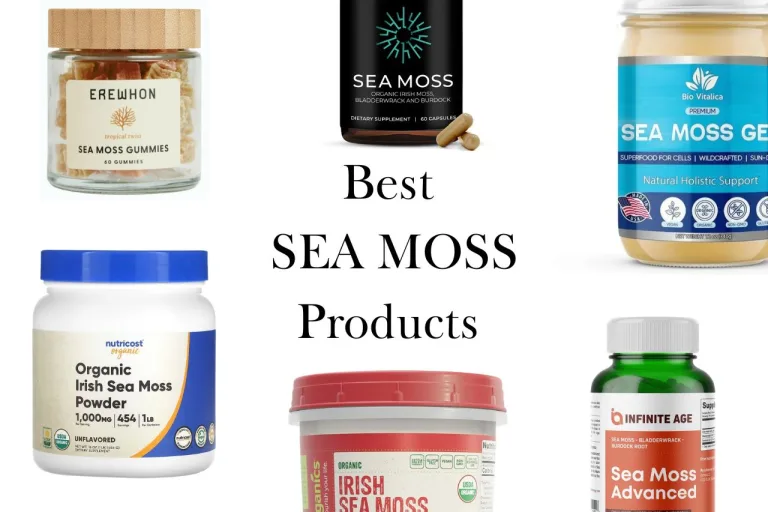
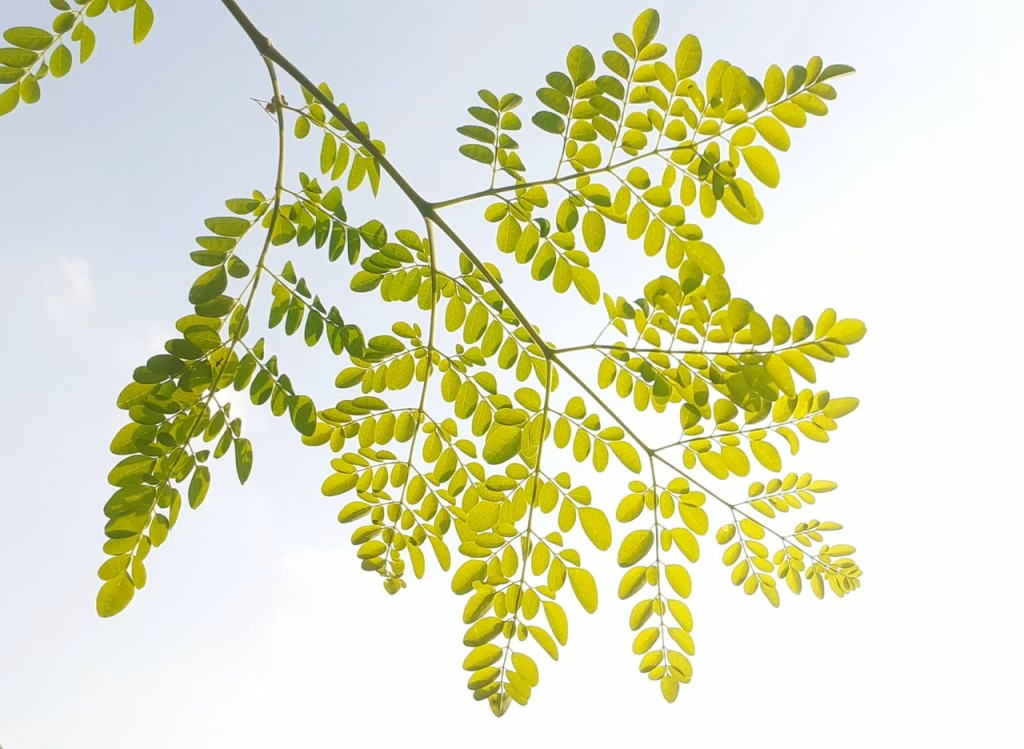
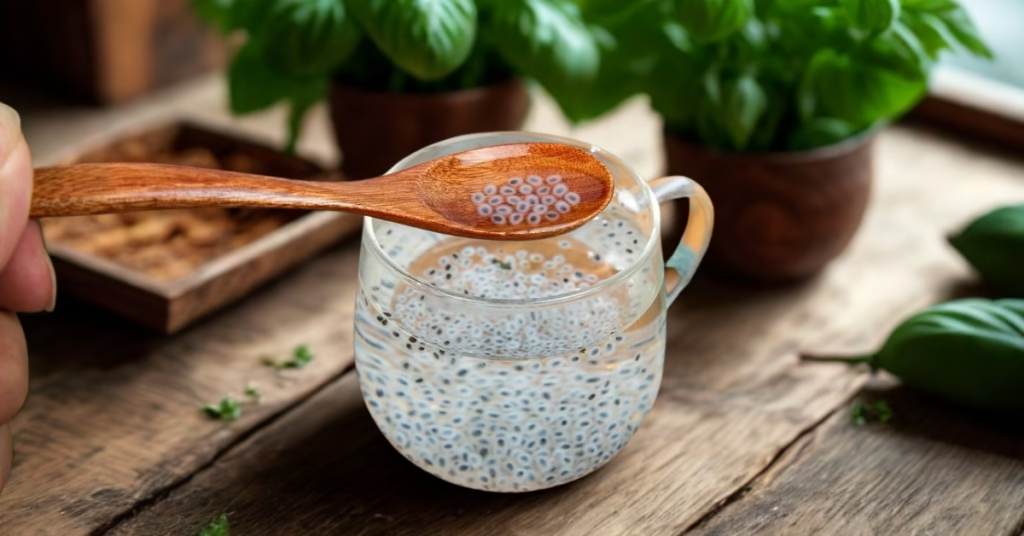

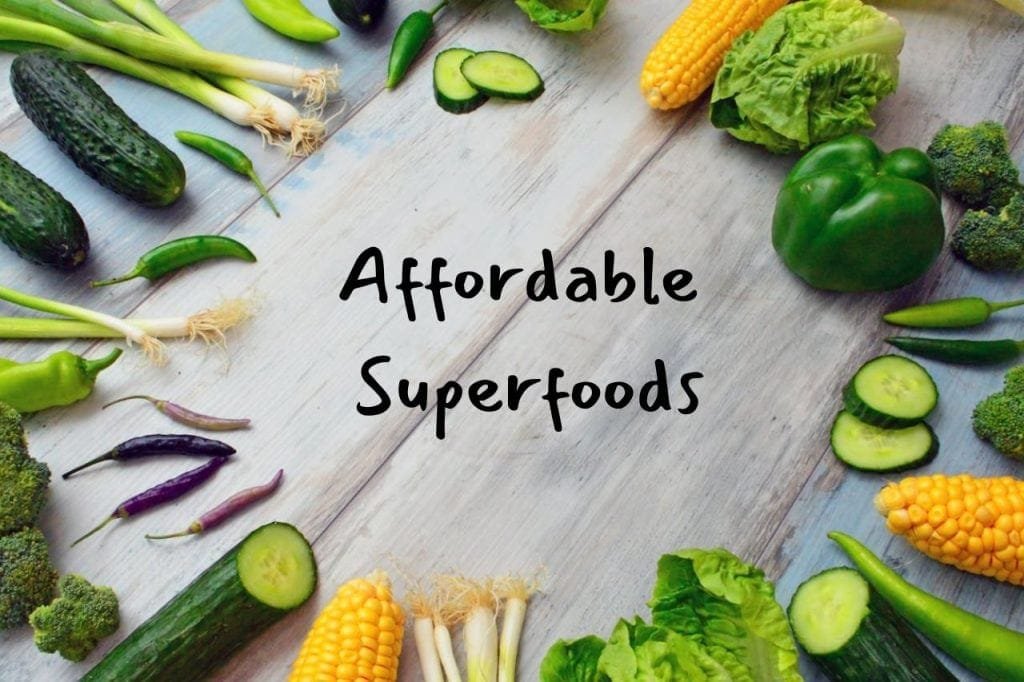
Great list, thank you so much.Picking good sea moss is so hard! I will give True Sea Moss gel a try 🙂